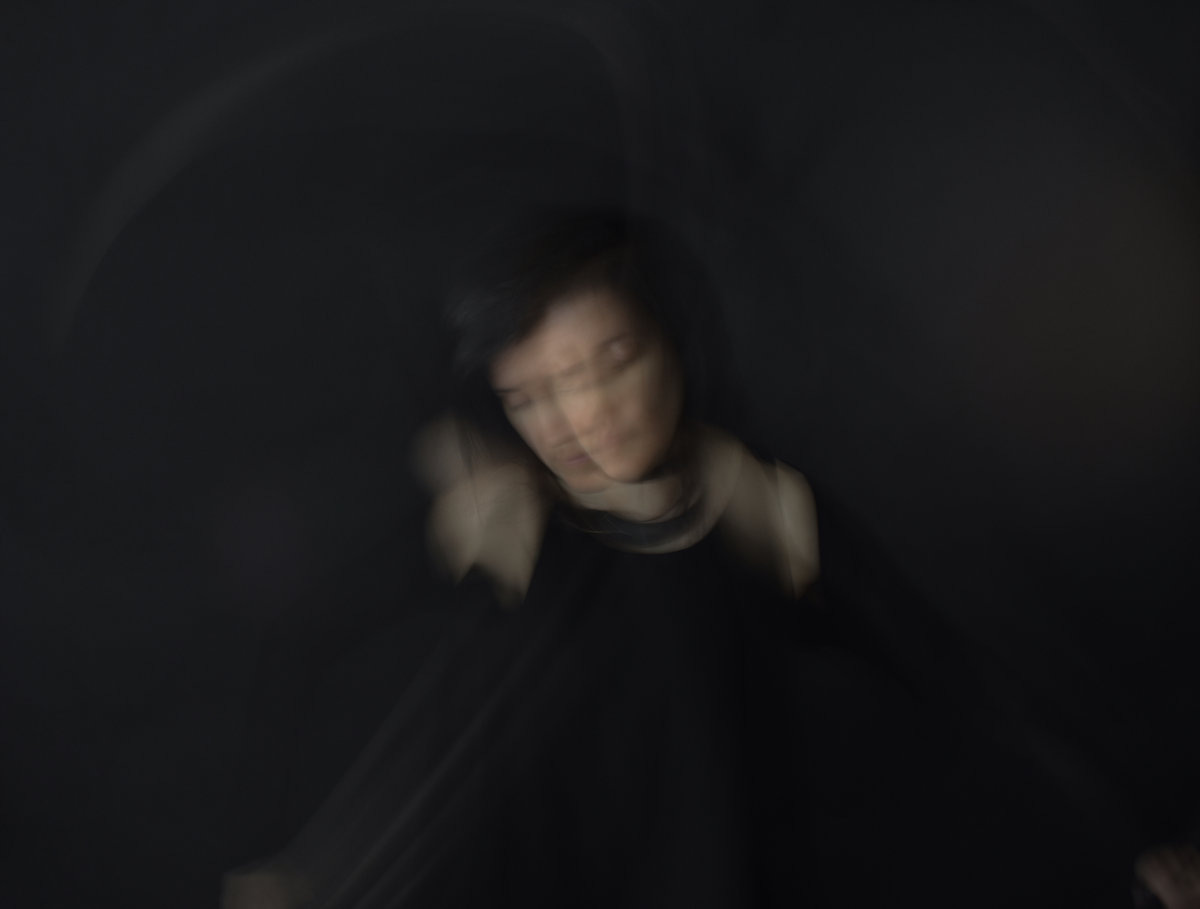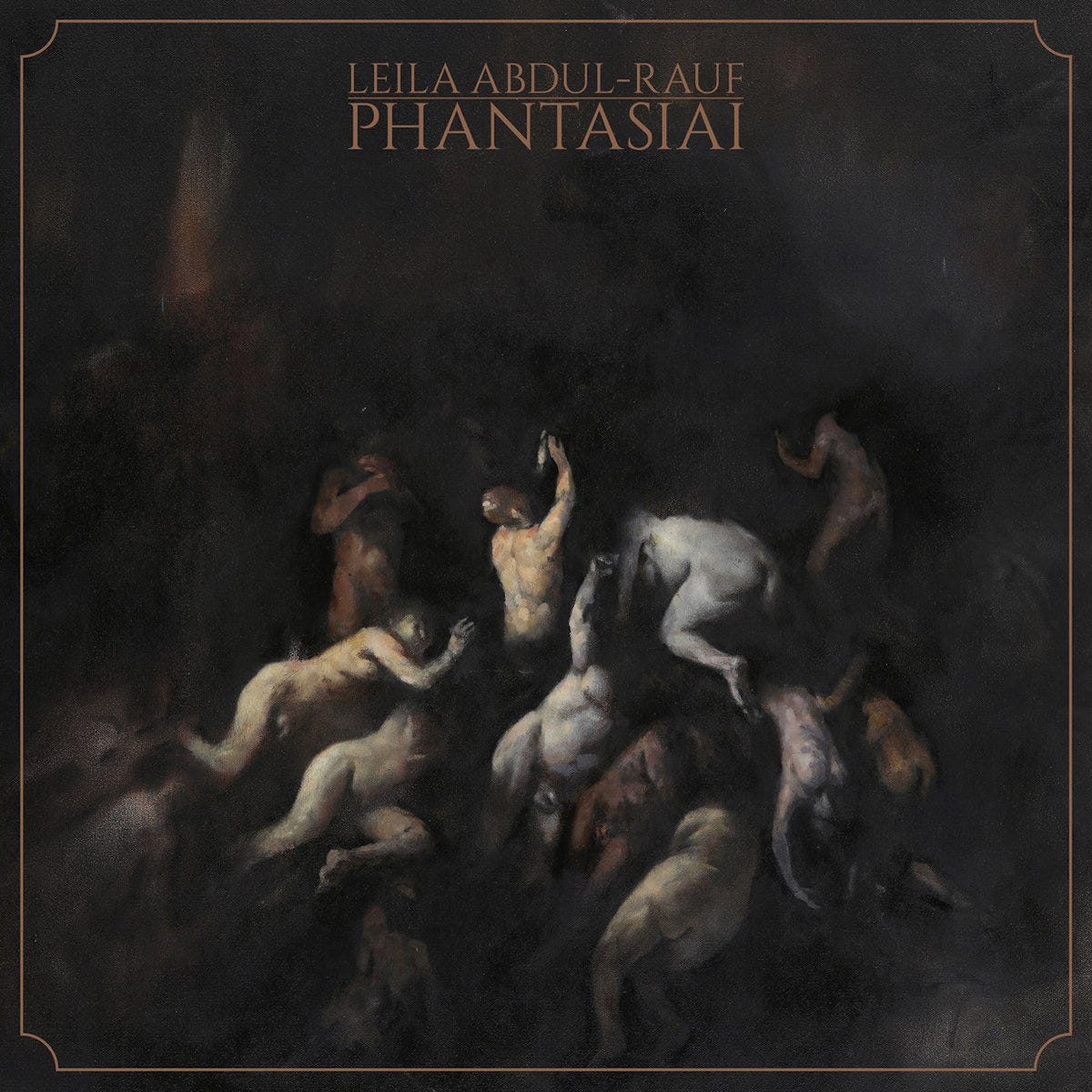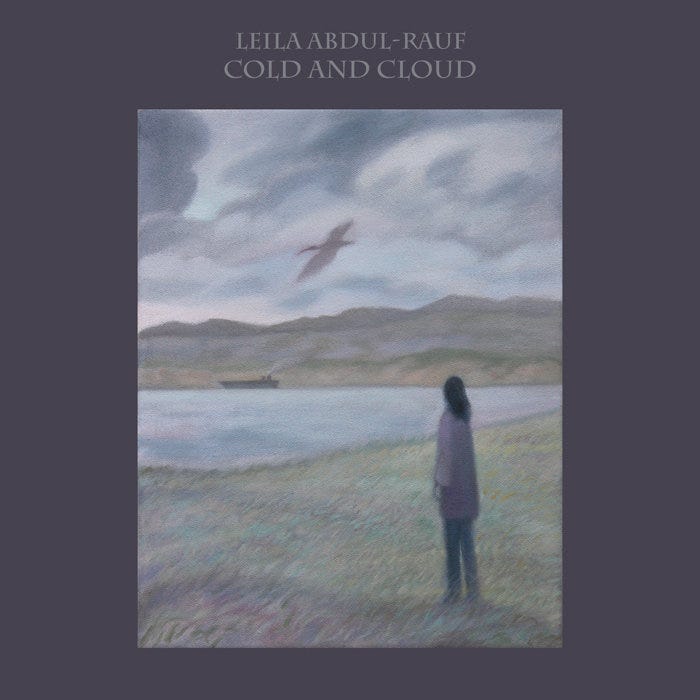Plunging into psychic depths with Oakland death metal veteran and ambient artist Leila Abdul-Rauf
The co-founder of Vastum discusses solo album "Phantasiai" plus her path from classical and industrial to making ambient music in the Bay Area
Best known as the guitarist, vocalist, and co-founder of the death metal band Vastum—which was formed in SF in 2009 and has toured internationally—Oakland artist Leila Abdul-Rauf just released her fourth solo ambient album under her own name. On Phantasiai, her “pandemic album,” the artist sings and plays piano, trumpet, and glockenspiel, manipulating the live instruments into a dark yet ethereal work exploring the psyche and its disintegration.
Next month Abdul-Rauf will perform live for the first time in more than a year alongside Joel St. Julien and Shipwreck Detective at FALL MASS, a showcase of Bay Area ambient artists hosted by White Crate. Ahead of that performance, we spoke with the artist about her journey, the new album, and music in the Bay Area.
Tell us about your musical background up to the present.
I grew up on the East Coast and my musical trajectory has been really diverse. I came from a classical and jazz music background as a kid. Then in my teens I played in a bunch of punk and metal bands, and metal was my path in my 20s. Most people now know me as the guitarist, vocalist, and co-founder of the death metal band Vastum. And we've been around for like 12 years.
I was playing bass with Cardinal Wyrm for four years, and I’m on the most recent album that came out last year. And then I occasionally play with Hammers of Misfortune, and I've been playing on and off with them for the past 11 years. They're sort of prog metal, 1970s, Hammond B3 organ style of metal—like traditional metal but with keyboards and very ornate songwriting structures. And then my solo ambient project has been around now for almost 10 years.
Given that you have a ton of experience in metal bands, how do you approach the solo project?
I wanted to express a more cinematic side of myself that hadn't been expressed in bands previously. The metal thing can be pretty limited. You're restricted to a certain instrument structure and compositional structure. For many years I played with Amber Asylum. They're a local band that had been around for decades, that border on the ambient post-rock side of things, and violin and cello are the main instruments. So when I was in that band, I definitely explored more of my ambient side.
I've always been a fan of extreme music. Whether it's some kind of metal or experimental music. Since my early teens I have been listening to bands like Throbbing Gristle and Einstürzende Neubauten and just any weird stuff I could get my hands on. So all of these genres have been of a part of me and my musical path, but the solo project allowed me to come into my own as someone with my own voice.
How would you describe the new album in relation to the other albums you've released under your own name?
Phantasiai is by far the darkest, coldest, most sinister of my albums. My past work was a lot more melancholic and maybe more lush or romantic or sad, but I feel like Phantasiai is plunging the depths of psychic disintegration. It's my pandemic album, so the world was in a much darker place. Not that I wasn't in a dark place when I wrote the other albums. I absolutely was, but I think there's something more sinister with more deep brass tones, like something you would hear in the tense parts of a symphony. But it’s still minimal because the instruments are restricted to brass, voice, piano, and glockenspiel.
I think it's more of a juxtaposition of the dark and the ethereal. I find the more ethereal moments on the new album to be disorienting. Beautiful and disorienting. Like you listen to it and you almost don't really know what you're listening to, or things maybe can get amorphous and dissonant. There's beauty, but it's mixed with this discomfort, this dissonance.
The album is named after “phantasaiai,” which you describe as “our impressions, the ways in which the world is represented through our senses, preceding actual thoughts. This is where music-making lies for me: in the space between senses and thoughts, having the power to express where words fall short.” Where did this concept come from?
I'm not a student of Hellenistic philosophy, and that is where the term “phantasiai” comes from. I work at a psychoanalytic institute in the Bay Area and I have access to a large amount of academic readings, so the concept of psychic disintegration is a psychoanalytic concept that I have read about. But in terms of the album—and in general with my albums—there is a personal tie-in to the theme. So it's something that I feel like I've experienced to a point personally.
In fact, the title came into my mind before any of the music. So it was sort of like, oh, this would make a really good title. And then I thought of a cool image to go with it. And I had both of those things before I wrote a single note. And then the process for me was, what does this album title and cover sound like as an album? And that was how I approached the songwriting.
The artwork is definitely captivating. It feels classical and modern at the same time. How did that play into the process?
Matt Jaffe is an artist based out of Berkeley, and we've been friends for a long time. He painted my last album cover for Diminution. I had approached him to do art for Phantasiai a while ago, and had told him about this vision of this image that I wanted to convey to him. And it turned out he was simultaneously working on something very similar. So it was sort of this synergistic moment where he showed me a draft of what he was working on, in progress, and it was like, yes, that's it. Naked entangled bodies grasping into space. So it was quite amazing.
So given that this is White Crate, we have to talk about where we are. You’ve been in the Bay Area for 18 years. Does that influence or fit into your music at all?
Oh, absolutely. For the first half of my time here, everything happened in person. It was all about meeting at a practice space with different people that have been living here for a long time. And so there's that aspect of it.
But I also think that no matter what, the place where you reside always plays a role in your creative process, no matter where that is. And I think for me, it's not just the people—like my bandmates that have influenced me—but also the landscape of the Bay Area that has been a huge influence on my aesthetic approach.
You remember how freaking cold the summers used to be. Like, they were freezing. And it's just unfathomable when you tell someone from the East Coast how cold it is in the summer here. They just don't get it. So my first album Cold and Cloud from 2013 was really about the Bay Area. Landscape played into the aesthetic, the cover, the title, and even though it conceptually had to do with the emotions I was going through at the time, the Bay Area landscape played into that.
There’s been this sense over the years that—due to the tech industry, skyrocketing rent, closing venues, etc.—the Bay Area music scene has been dying over the past couple decades. Do you agree with that sentiment?
There’s so many talented people here, and I feel like there are just new generations of talent that keep cropping up. I existed in a certain era and I’m trying to always reinvent myself for the new era. But having been here for almost 20 years and knowing about the history of Bay Area thrash—this was like the Mecca back in the 80s—and seeing how that tied into the scene in the mid-2000s, and then seeing where it is now, generations later, it just feels like it just keeps going and reproducing. So, no, I don't feel like it's dead. Whoever said that, I think might be a little out of touch.
What songs, albums, or artists have you been listening to and loving the most recently?
Geist & the Sacred Ensemble are from the Northwest, and they play this sort of dark ritualistic kind of psychedelic meditative music. There's elements of doom and folk, and I've really enjoyed their most recent album Waning Hymns.
And now comes the part where I tout my friends' bands because that's what I've been listening to a lot lately. I do a lot of one-off collaborations with friends or acquaintances and, most recently, there's a band that one of my best friends is in called Forlesen that I contributed trumpet and glockenspiel to. And now I just listened to the full mix, the whole album mix, and it's lovely. It's a really, really beautiful album, sort of like ambient black metal and doom. But their first album Hierophant Violent is great too.







